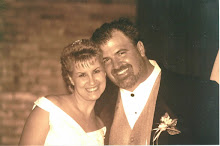Now that the Supreme court of California has redefined for all Californians what "marriage" will be, there are sure to be even more misconceptions.
Let me tell you what the teens in the Los Angeles area that I talk to think about marriage. They today no longer consider themselves "single" if they have had the "will you be my boyfriend/girlfriend?" talk. That's it.
In my conversations, the following relationships are seen as EQUIVALENT:
- Two people who are seeing each other exclusively for some period of time
- Two people who live together
- Two people who live together and have children, but are not married
- Two people who have taken legal public vows
Here's something else that's scary: They also think the main reason that people don't get married is because they didn't have the money for a "Party."
Most teens I talk to are very sympathetic to same-sex marriage because, for them, its really about whether or not you get to have the Party.
They don't understand the legal ramifications of redefining the word marriage, of course. Based on what they perceive adults are doing, moving in, breaking up, having a Baby's Daddy or a Baby's Mama, divorce, infidelity, living together until something better comes along... Does it really matter if gay people get to have the same fluidity?
Not to the teens I talk to.
As a result of those talks, we developed a specific presentation called "10 Steps For Choosing A Good Mate (Or How To Avoid Ending Up With A Weenie)". Using the same relational research that eharmony and Match.com use, we layout the pattern for success in relationships. The same pattern holds for every country, religion and culture. FOLLOW these steps, you make a good match. FAIL to do them, make a poor match.
What's amazing is how relieved the students are when we're done. They feel empowered that they have something tangible to guide them. Something more reliable than the "magical tingly feelings."
Its not unusual for students who recognize us around town years after we were in their classroom to tell us they "still have the list" or they are remembering to apply some specific tip from it.
This past January, we ran into two of our former students (now in their 20's), who work at Macy's. Calling out to us as if we were celebrities, they wanted us to know they had just the day before been telling a co-worker why moving in with her boyfriend was a mistake. As they went down the list we gave them in the 7th GRADE, these two girls were letting their friend know, this particular young man was not a good match for her. (We called this "having a committee.") Our former students wanted this young woman to raise her standards.
Yes, "the List" has some pretty old-fashioned ideas on it... like you should share the same interests and beliefs in some key areas... that you should evaluate their family life in anticipation of having that duplicated... and that managing money is the Number One skill couples MUST have before they marry.
What is so sad to me, is traditional marriage: one man, one woman faithfully committed for a lifetime, providing an optimum environment in which to raise children will now been seen as even less important and valuable than before.
Hundreds of studies show it's traditionally married people who:
- live longest
- make and save the most money
- have the best sex lives
- have fewer emotional problems
- described themselves as happy and satisfied
- have children who go to college
- have far fewer children with emotional problems
- are less likely to abuse chemicals



